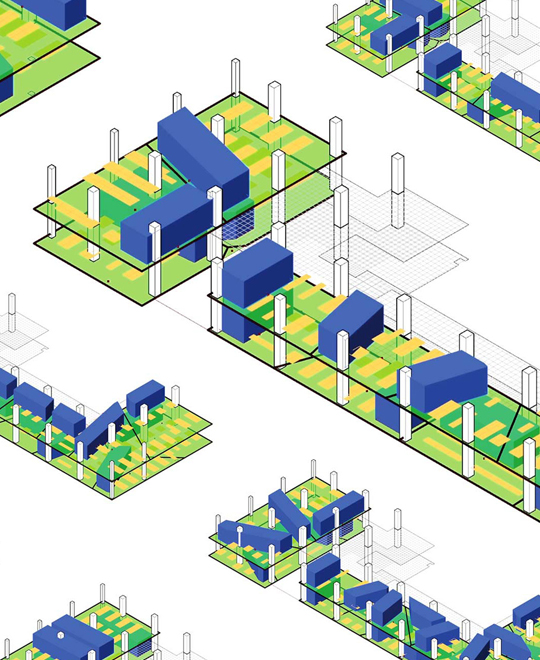Studio 10
MORPHO.LOGIC
Dominik Holzer

Studio Description
Over the past few years the use of Machine Learning (ML) and associated Artificial Intelligence (AI) have increasingly become applied across a broad level of activities that affect humankind. Using Neural Networks, ML and AI allows systems to extract meaning and automatically learn & improve from experience to. ML and AI not only help to extract logical patterns and trends out of large, complex datasets, they are capable of decision-making and synthesis. Some of the most commonly used apps such as LinkedIn™, Facebook™, Tinder, Spotify™, Pinterest™, Instagram™, all run AI/ML algorithms in the background. Without us noticing, we are entering an era where choices are made for us based on prior experience common denominators.
Yet as designers, we should be wary of these developments. We may even sense an undercurrent of unease when considering where ML/AI algorithms can take us. As they suggest what we should eat/hear/visit/do, or who we interact with, they may – over time - diminish our appetite/ability to make unconventional choices, to explore new frontiers and look for ‘something different’.
In this studio we will explore the boundaries of designing with ML/AI. We will learn to question when and where their application assists our design process and where we actively have to go ‘against the grain’ of what ML/AI might suggested. In the 12-week studio we will test the above approach and develop a multi-functional innovation hub that will house a library, exhibition / presentation spaces, as well as an archive in a prominent Melbourne location.
Learning Outcomes
Students delve deeply into the design of innovation-hubs and gather reference examples from around the world. Students will then learn how to apply Machine Learning and AI to search for logical patterns in the design of such buildings to then attempt working with output from the ML system as a starting point for their design. It is crucial for students to develop a sensibility towards the boundaries of their own design and suggestions made by the algorithm. Class-conversations will assist in the analysis of each student’s design process.
Process
The semester will kick off with group-research about the site, its urban context,In week 3 we will run an intensive Machine Learning and AI workshop to assist students to understand its potential and challenges. Following the workshop, students will individually develop speculative responses to the design challenges at hand.
Prerequisites
- A curious and open mind
- Expert Rhino Skills
- Grasshopper/and or scripting Skills
- Hands-on with digital tools
- A basic understanding of optimisation
Studio Leaders
Dominik Holzer is a Senior Lecturer in Digital Architectural Design at the University of Melbourne. Dominik completed a Masters and PhD degree at RMIT where he investigated the nexus betw. architectural and engineering with a strong focus on knowledge transfer and technology. Next to his role in academia, Dominik consults on a range of Design Technology related matters in practice.
ST1/10 Tuesdays 15:15-18:15 in MSD Room 448
ST2/10 Fridays 17:15-20:15 in MSD 125